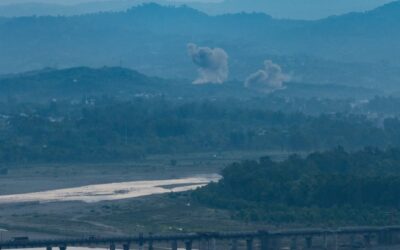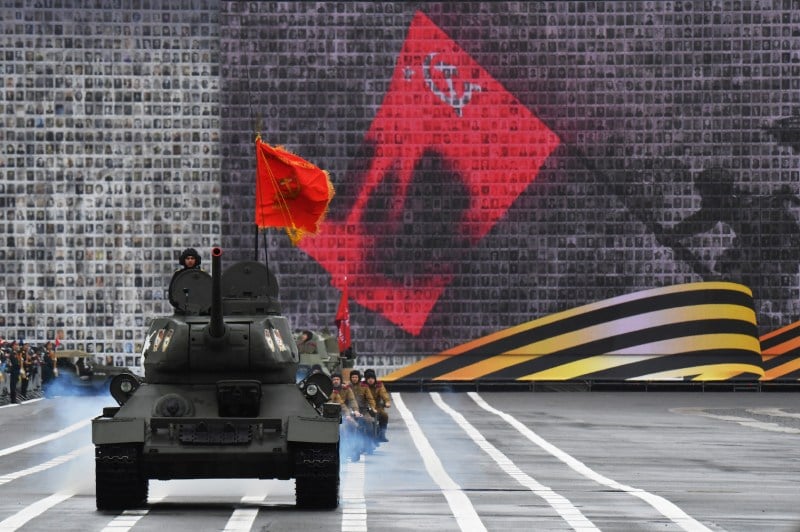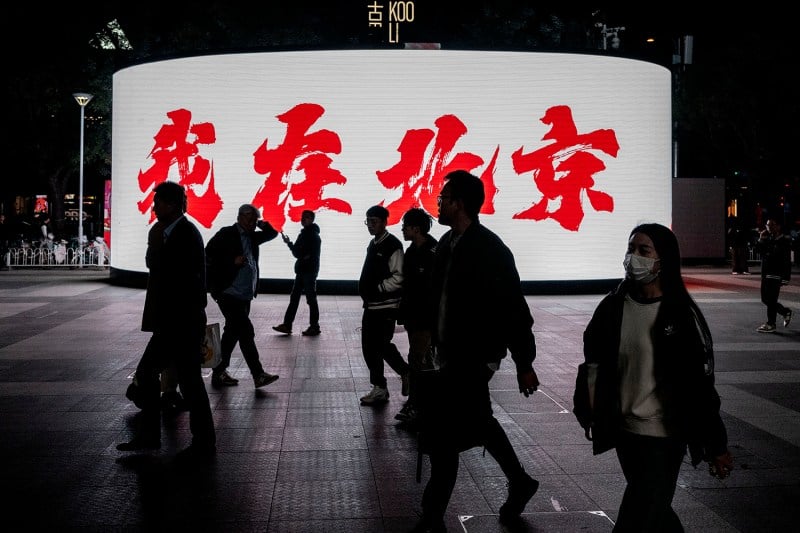U.S.-China Trade Talks to Focus on De-Escalation

U.S.-China Trade Talks to Focus on De-Escalation
But the likelihood of the two sides reaching a comprehensive deal soon remains low.
People are seen in front of a McDonald’s restaurant in Beijing on May 8. Pedro Pardo/AFP via Getty Images
Senior U.S. and Chinese negotiators are gearing up for high-stakes trade talks in Switzerland on Saturday. De-escalating the trade war is a top priority for both Team Trump (represented by U.S. Treasury Secretary Scott Bessent and Trade Representative Jamieson Greer) and Chinese Vice Premier He Lifeng, Beijing’s top economic official. But with neither side willing to lose face in negotiations, the likelihood that Saturday’s dialogue culminates in a trade agreement remains low.
“My sense is that this will be about de-escalation, not about the big trade deal,” Bessent told Fox News on Tuesday.
Senior U.S. and Chinese negotiators are gearing up for high-stakes trade talks in Switzerland on Saturday. De-escalating the trade war is a top priority for both Team Trump (represented by U.S. Treasury Secretary Scott Bessent and Trade Representative Jamieson Greer) and Chinese Vice Premier He Lifeng, Beijing’s top economic official. But with neither side willing to lose face in negotiations, the likelihood that Saturday’s dialogue culminates in a trade agreement remains low.
“My sense is that this will be about de-escalation, not about the big trade deal,” Bessent told Fox News on Tuesday.
A lot is riding on Saturday’s talks between the world’s two largest economies. On Friday, new Chinese customs data indicated that Chinese global exports grew 8.1 percent in April compared to the previous year despite Trump imposing sweeping tariffs last month. This unexpectedly strong performance represents a setback for Washington, as it strengthens Beijing’s hand ahead of negotiations and demonstrates that China’s recent efforts to court trade elsewhere have worked.
Trump, however, is hoping that his hard-line playbook will bolster U.S. negotiating power. On Wednesday, for instance, Trump said he was not willing to lessen U.S. duties on China (currently totaling 145 percent for most goods) even if doing so would help jump-start negotiations. Yet just two days later, he seems to have changed his tune, suggesting on Friday that he would be willing to cut U.S. duties. “80% Tariff on China seems right!” he wrote on Truth Social. Chinese retaliatory tariffs sit at 125 percent.
Read more in today’s World Brief: U.S., China Prepare for High-Stakes Trade Talks in Geneva.
This post is part of FP’s ongoing coverage of the Trump administration. Follow along here.
Alexandra Sharp is the World Brief writer at Foreign Policy. X: @AlexandraSSharp
More from Foreign Policy
-

Eight people dressed in camouflage military combat uniforms wade across a river, the water up to their waists. The soldiers carry large backpacks along with their rifles. Snowcapped mountains and a thick forest of evergreen trees loom in the distance. Get Ready for the Aleutian Island Crisis
As conflict heats up in the Arctic, foreign adversaries eye Alaskan territory.
-

U.S. President Donald Trump speaks to reporters before boarding Air Force One at Morristown Municipal Airport in Morristown, New Jersey, on April 27. Trump’s First 100 Days Reveal a ‘Strongman’s’ Unprecedented Weakness
No U.S. president has ever surrendered global power so quickly.
-

An elderly man and woman sit on the ground, the man on his knees as he sorts through something on the ground. Behind him are a rusted cart and bicycle in front of a paint-smeared concrete wall and a battered corrugated metal sign with the words USAID: From the American people” on it. What Trump’s New Budget Says About U.S. Foreign Policy
The president wants to significantly pull back on many of America’s traditional global engagements while spending more on the border and defense.
-

U.S. President Donald Trump listens to Secretary of State Marco Rubio at a cabinet meeting in the White House in Washington, D.C. Rubio’s Reorganization Plan Is a Wrecking Ball
The State Department revamp goes far beyond streamlining—it will devalue human rights and strip away critical expertise.












Join the Conversation
Commenting on this and other recent articles is just one benefit of a Foreign Policy subscription.
Already a subscriber?
.
Subscribe
Subscribe
View Comments
Join the Conversation
Join the conversation on this and other recent Foreign Policy articles when you subscribe now.
Subscribe
Subscribe
Not your account?
View Comments
Join the Conversation
Please follow our comment guidelines, stay on topic, and be civil, courteous, and respectful of others’ beliefs.
Change your username |
Log out
Change your username:
CANCEL
Confirm your username to get started.
The default username below has been generated using the first name and last initial on your FP subscriber account. Usernames may be updated at any time and must not contain inappropriate or offensive language.